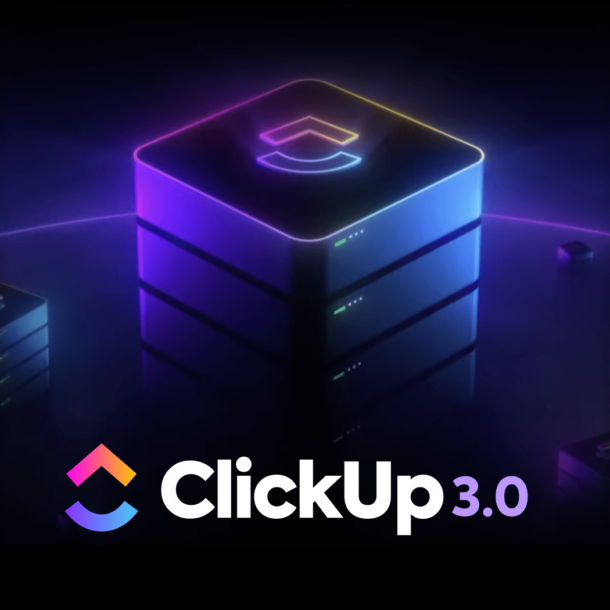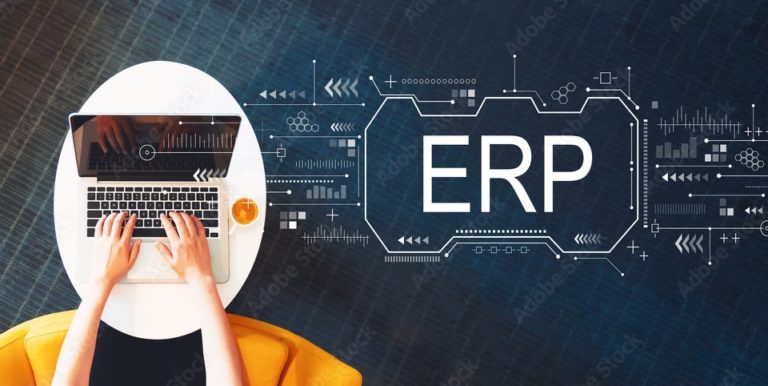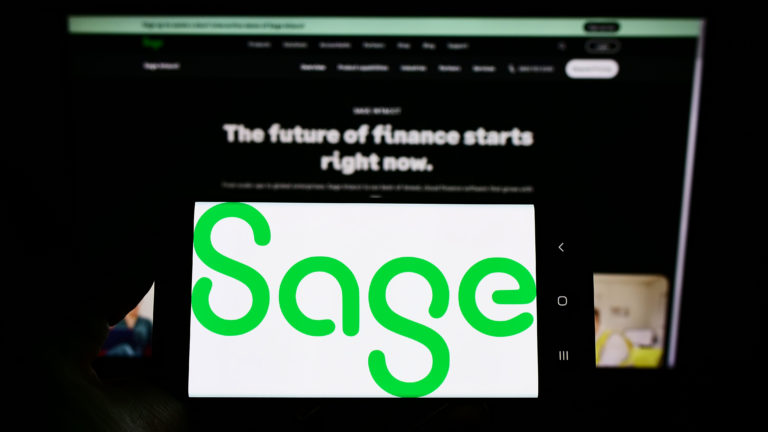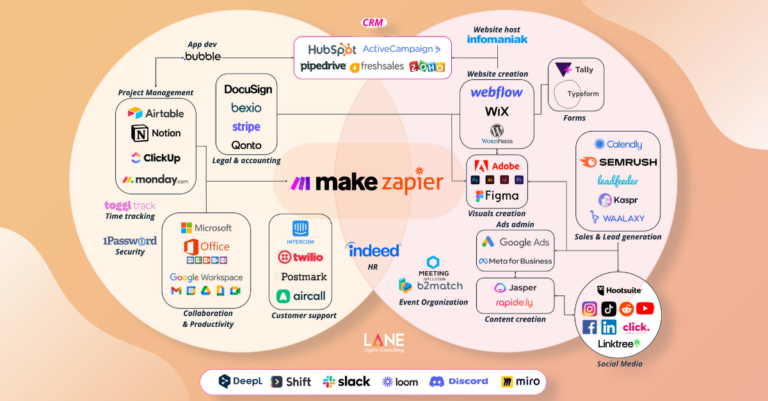
Today, choosing the right ERP system for your Swiss business is crucial to ensuring efficient management of your business. With a wide choice of solutions available on the market, it can be difficult to select the best option for your Swiss business. In this article, we take a look at the search results for ERP integration for Swiss companies and find the best ERP solutions in 2023.
ERP (Enterprise Resource Planning) software has grown rapidly in recent years, offering integrated solutions for managing company resources.
SMEs in particular have benefited from these systems, which have improved productivity, inventory management, accounting, invoicing and even human resources management. But how do you choose the best ERP for your company in 2023, taking into account the specificities of the Swiss market?
In this article, we will analyze the three main ERP solutions we recommend for Swiss SMEs in 2023, offering a comparative approach based on our expert position on SAP, SAGE and Odoo. We will also evaluate the key criteria for choosing an ERP in 2023, such as essential ERP functionality, flexibility, ease of use, cost and technical support for implementing an ERP system in Switzerland.

ERP (Enterprise Resource Planning) is a complete business management solution. It facilitates the management of all an organization's activities. This can include accounting, inventory management, production, purchasing, resource planning and much more.
The main reason behind a company's adoption of ERP is to increase efficiency. Indeed, the use of ERP enables companies to streamline their processes and make informed decisions based on accurate data.
Choosing the ERP best suited to your company will depend on a number of factors, such as its size, sector of activity, business processes, compliance requirements and many other considerations. But on average, companies take 17 weeks to choose their ERP (Softwarepath).
So, if you're looking for the right ERP for your business in Switzerland and need help finding and implementing it, the LANE team is here to help. Specialized in the implementation of ERPs in Switzerland, we offer a quality service to save you time.
The CRM (Customer Relationship Management), PMS (Property Management System) and ERP (Enterprise Resource Planning) are management tools used in different contexts.
CRM is primarily used to manage customer relationships. It centralizes customer information, such as contact details, purchase histories, support requests, customer service interactions and so on. Thanks to this data, sales teams can better understand their customers' needs and preferences, and provide them with personalized offers. CRM is used in sectors such as sales, marketing and customer service.
In contrast, the PMS is used in the hotel industry to manage reservations, pricing, invoicing, inventory management, service management and more. The PMS centralizes all data relating to the management of the establishment, from the receipt of reservations to the management of day-to-day operations. It also enables you to monitor performance, manage inventory and stock levels efficiently, and deliver a seamless customer experience.

ERP is therefore the most comprehensive tool covering all company processes, including finance, sales, purchasing, inventory, production, human resources management and more. ERP allows you to centralize all company data, analyze it and use it to make more informed decisions. It also enables you to manage day-to-day operations more efficiently, reduce costs and optimize business performance.
In short, CRM is mainly used to manage customer relations, while PMS is used in the hotel industry to manage reservations and day-to-day operations. ERP, on the other hand, is a more comprehensive tool covering all aspects of the business.
If you need an expert to implement your CRM, ERP and PMS, our team will be happy to help.
The ERP market is constantly evolving, and it's important to keep abreast of trends to make an informed decision. Some of the most important trends include :
Now that we've looked at ERP trends for 2023, let's take a look at the top ERP recommendations for Swiss companies.
There are many ERP options on the Swiss market, each with its own advantages and disadvantages. Here are three of the most popular high-performance ERP systems to consider for 2023:

SAP is one of the world's leading publishers of business process management software, offering solutions that enable efficient data processing and information flow within companies. SAP is a fully-configurable ERP that enables all company functions to share a single, reliable source of information.
The application SAP Business One application enables companies to improve margins and grow their business without increasing the complexity of their on-premise or cloud-based IT environment.
SAP stands out for its dominance of the enterprise applications market, with $18.1 billion and 7.5% market share. The company also offers a data analysis platform (SAP HANA), as well as cloud services, mobility, supply chain management and application development.
What sets SAP apart is the richness and diversity of its solution offering, as well as its ability to meet the business process management needs of small and medium-sized businesses. The company also offers functionalities for monitoring website failures and protecting against spam, fraud and abuse.
However, the deployment of such a tool implies profound transformations in terms of both organization and know-how, at all levels of the company. Our team of experts will be delighted to help you implement your SAP software.

The specificities of SAGE are numerous, and depend on the different software packages it offers. Functionalities common to most SAGE products include sales management (invoicing, quotations, orders), accounting (account management, balance sheets, VAT), payroll and human resources management. SAGE also offers solutions for inventory and supply management, as well as customer relationship management (CRM), among other functionalities.
Sage is an ERP offering Swiss companies a complete solution for financial management and accounting. It enables users to manage general accounting and reporting, cash flow, fixed assets, means of payment and much more. Sage X3 is an all-in-one ERP that simplifies the management of your business according to your specific needs. The Sage FRP 1000 Engagements suite offers a complete, scalable and configurable solution for financial and accounting management. It enables users to monitor the company's financial ratios and accounting data in real time. Sage 100 Accounting also facilitates financial management with automated financial flows and recurring task processing.
SAGE also boasts a strong international presence, with subsidiaries in many countries. The company's commitment to technological innovation is also evident in its strategy of developing management solutions based on the cloud, AI technologies and mobility.
Last but not least, SAGE offers a wide range of products to suit all types of business, from start-ups to large corporations, SMEs and VSEs. This means that every company can find the management software that meets its specific needs, whatever its sector of activity.
In short, Sage is the ideal ERP for financial management and accounting, thanks to its comprehensive, intuitive and flexible solutions that adapt to the specific needs of businesses.

Odoo is a complete open-source ERP offering a range of integrated business management modules for companies of all sizes and in all sectors. It's a complete solution that includes modules for accounting, sales, purchasing, human resources, project management, inventory, manufacturing, customer relationship management (CRM) and much more.
It is considered to be the most complete modular ERP on the market, thanks to the wide variety of modules available to users, enabling them to customize their system according to their company's specific needs. Modules can be purchased individually or as a package, depending on the company's needs. What's more, Odoo's open-source community is active and dynamic, offering full technical support and regular updates.
Odoo software features an intuitive user interface, advanced customization capabilities, easy integration with other third-party applications and flexible billing and project management. Agile projects.
In addition to these features, Odoo offers a complete e-commerce suite, powerful inventory management and detailed management reports to help companies better manage their business.
In short, Odoo is a comprehensive, scalable, open-source ERP solution offering advanced functionality for Swiss companies of all sizes and in all sectors. Its great flexibility and active community make Odoo a popular solution for companies looking to customize their system to their specific needs.
In conclusion, these three ERP systems have their advantages and disadvantages, depending on the specific needs of each company. SAP is ideal for large companies that need a very powerful and comprehensive ERP system, while Sage is ideal for small and medium-sized businesses that need a user-friendly and affordable ERP system. Odoo is ideal for small and medium-sized companies who need an ERP system that is easy to use and affordable, but still offers a wide range of functionalities.
It should be noted that, according to a Softwarepaththe average budget per user to implement an ERP is $8,265, or around 6,926 euros. So, if you'd like professional advice on ERP implementation, our ERP implementation experts in Switzerland will be delighted to discuss your project.
If you're on the fence about implementing ERP software for your business, we've listed some of the main benefits an ERP package can bring to your company:
By centralizing all your company's data, an ERP helps to structure information, avoid duplication and errors, and thus optimize processes. Certain tasks can also be automated, resulting in greater productivity. With better data management, you can monitor your activities in real time and make decisions more quickly.
in real time. This greatly facilitates communication between the different teams and makes exchanges more fluid. Decisions can be taken more quickly, and with better knowledge of the data.
By optimizing management processes, ERP also reduces the costs associated with running your business. Exchanges are more fluid, reducing the cost of travel and meetings. What's more, the risk of errors is reduced, which means lower costs for returns or repairs.
ERP solutions operate in the form of modules that can be activated or deactivated according to the company's needs. This makes it possible to configure a tailor-made management system, perfectly adapted to the company's needs. If the company's needs grow, it's easy to upgrade the tool, by adding new modules or modifying existing parameters.
In short, implementing ERP software can bring many benefits to your business, such as streamlined processes, improved communication, cost control and strong adaptability. By choosing the right ERP system, you can improve your company's efficiency and position it for success.

Are you looking for a reliable partner to select and implement the right ERP system for your company in Switzerland? LANE is there for you!
We take into account the size of your company, your needs in terms of functionality and your budget constraints to select the best ERP for you in 2023.
We then take care of implementing your ERP, with particular attention to integration with existing systems and training your teams to use the new software.
At LANE, we also offer alternatives for specific functionalities such as PMS and CRM, with the emphasis on lower costs, ease of use and adaptability. Trust us to accompany your Swiss company towards a high-performance, efficient ERP solution in 2023.
For 2023, the best ERP solutions we recommend for your Swiss business are SAP, Sage and Odoo. Each is designed to support business development at all levels, and should offer the essential functionality that perfectly matches your business. It's important to carry out a thorough analysis before making an important decision on the ERP that will support your company's growth in the years to come.
While this list certainly contains the best ERPs in 2023, it may evolve over time, and it's best to seek advice before opting for the right solution. If you're looking for expert advice or guidance in choosing and implementing ERP in 2023, our team will be delighted to help!